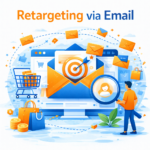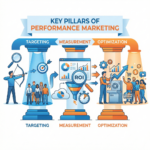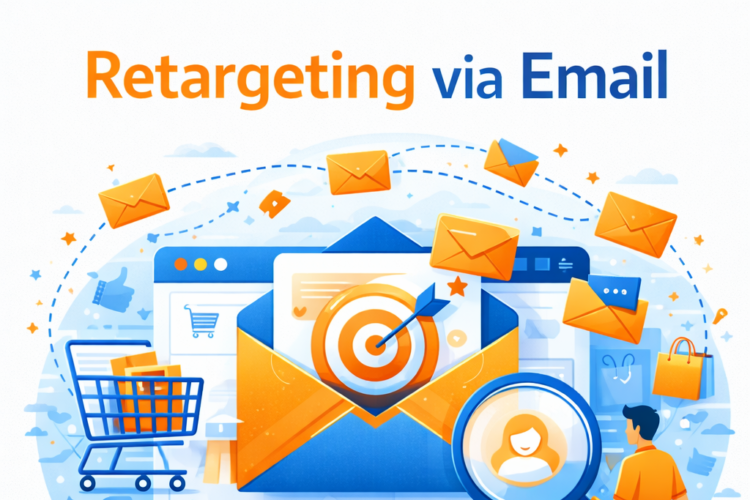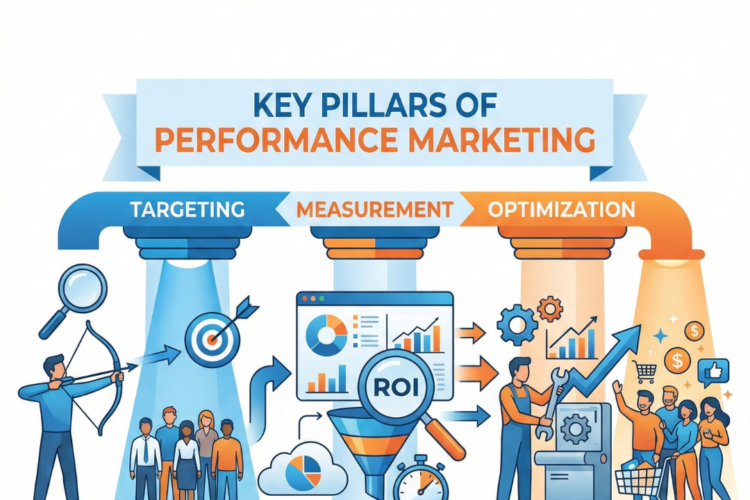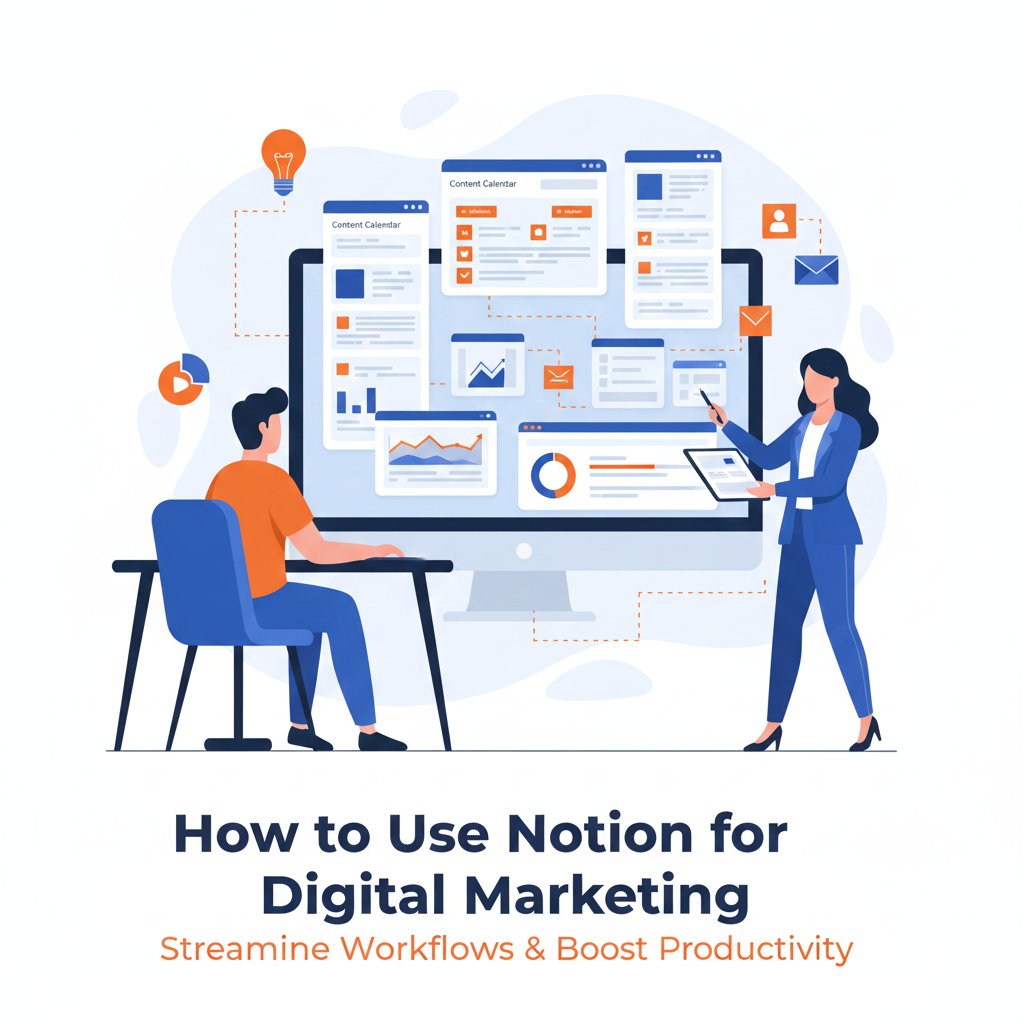
How to Use Notion for Digital Marketing: The Complete Guide
Perfect — this is a great topic, and there’s a lot to unpack. Notion is no longer just a note-taking tool — it’s a central operating system for digital marketers, where you can plan campaigns, manage clients, track performance, and build a knowledge base.
Below is your very long, detailed, and complete guide on:
“How to Use Notion for Digital Marketing: The Complete Guide (2025 Edition)”
🧠 Table of Contents
What Is Notion & Why It’s Powerful for Digital Marketers
Setting Up Your Notion Workspace
Key Use Cases of Notion in Digital Marketing
3.1 Campaign Planning
3.2 Content Marketing
3.3 SEO Management
3.4 Social Media Management
3.5 Paid Ads Tracking
3.6 Influencer Marketing
3.7 Email Marketing & Automation
3.8 Client & Project Management
3.9 Marketing Analytics Dashboards
Notion Templates for Marketers (with structure ideas)
Building a Marketing System in Notion (Step-by-Step)
Integrations: Connecting Notion with Your Marketing Stack
Collaboration, Reporting, and Workflow Tips
Advanced Automations Using Notion API + Tools (Zapier, Make)
Pros and Cons of Using Notion for Marketing Teams
Real-World Examples of Marketing Teams Using Notion
Final Tips, Shortcuts & Optimization Ideas
🧩 1. What Is Notion & Why It’s Powerful for Digital Marketers
Notion is an all-in-one workspace where you can plan, write, collaborate, and organize marketing tasks in a single system.
Think of it as a mix of:
Google Docs (for documentation)
Trello/Asana (for project management)
Airtable (for databases and tracking)
Slack (for collaboration)
Evernote (for notes and ideas)
Why it’s perfect for digital marketers:
Flexible: Can adapt to any type of marketing workflow (SEO, paid ads, social, etc.)
Visual: Kanban boards, tables, calendars, galleries — all in one page
Collaborative: Invite team members, comment, and assign tasks
Centralized: Store SOPs, campaign data, and content calendars in one place
Integrable: Works with tools like Zapier, Google Analytics, Slack, and more
⚙️ 2. Setting Up Your Notion Workspace
Before jumping in, you need a clear workspace structure.
Step 1: Define your top-level pages
These could be:
🧭 Marketing HQ
📅 Campaign Calendar
✍️ Content Hub
💰 Paid Ads Tracker
📊 Analytics Dashboard
📧 Email Marketing
👥 Clients / Brands
🧱 Templates & SOPs
Step 2: Create a “Home Dashboard”
A central navigation page linking to all your main areas.
Include:
Quick links
Daily task view
KPIs overview
Upcoming campaigns
Step 3: Set your workspace hierarchy
Notion pages are nested — so structure like this:
Marketing HQ
├── Campaigns
│ ├── Campaign Tracker
│ ├── Campaign Calendar
│ └── Campaign Assets
├── Content Marketing
│ ├── Blog Planner
│ ├── Keyword Research
│ └── Content Calendar
├── Social Media
│ ├── Post Ideas
│ ├── Content Calendar
│ └── Analytics
🎯 3. Key Use Cases of Notion in Digital Marketing
Let’s break it down by specific marketing functions 👇
🧩 3.1 Campaign Planning
Goal: Plan, execute, and monitor multi-channel campaigns.
How to set it up:
Create a Campaigns database with properties:
Campaign Name
Objective (Awareness / Traffic / Conversions)
Status (Idea / Planning / Active / Completed)
Channels (SEO / Paid / Email / Social)
Budget
KPIs
Start & End Dates
Owner / Team Member
Performance Notes
Use views:
Table view → overview of all campaigns
Calendar view → see campaigns by launch date
Kanban view → manage stages visually
Bonus: Add a “Campaign Brief Template” page with:
Target Audience
Message/USP
Creative Concepts
Content Plan
Funnel Structure
✍️ 3.2 Content Marketing Management
Use Notion as your entire content hub.
Setup:
Create a Content Database with properties:
Title / Topic
Content Type (Blog, Video, Infographic)
Target Keyword
Funnel Stage (TOFU / MOFU / BOFU)
Status (Idea / Writing / Review / Published)
Writer
Publish Date
URL
Platform (Website / Medium / LinkedIn / YouTube)
Views:
Kanban: Visual progress tracker
Calendar: Publishing schedule
Table: Keyword and performance tracking
Bonus features:
Attach Google Docs or Notion subpages for drafts.
Embed images, briefs, and SEO checklists.
Add “Content Brief Template” page:
Keyword
Title & Meta Description
Target Audience
Outline
CTA
🔍 3.3 SEO Management
Centralize all your SEO workflows inside Notion.
Example pages:
Keyword Research Database
On-page Optimization Tracker
Backlink Outreach Tracker
Monthly SEO Performance Dashboard
Keyword Database fields:
Keyword
Search Volume
Keyword Difficulty
Intent
URL Target
Current Rank
Notes
Backlink Tracker fields:
Website
Contact Person
Status (Contacted / Accepted / Published)
DR / DA
Anchor Text
Link Type (Follow / NoFollow)
Pro Tip:
Use Notion formulas to auto-categorize keywords or calculate opportunity scores:
SEO Opportunity = (Search Volume / Keyword Difficulty)
📱 3.4 Social Media Management
Notion can fully replace tools like Trello for social planning.
Social Media Calendar setup:
Database fields:
Platform (Instagram, LinkedIn, YouTube, X, etc.)
Post Idea / Caption
Media (embedded or linked)
Hashtags
Designer / Editor
Post Status (Draft / Scheduled / Published)
Engagement (Likes, Comments, Shares)
Views:
Kanban view: Track status of posts
Gallery view: Visual layout of posts
Calendar view: Posting schedule
Tip: Use Notion’s “Gallery” for visual post previews.
💰 3.5 Paid Ads Tracking
Track and analyze Google Ads, Meta Ads, LinkedIn Ads, etc.
Create an Ad Campaigns Database
Properties:
Campaign Name
Channel (Google, Meta, LinkedIn)
Budget
CPC / CPM
CTR
Conversion Rate
CPA
ROAS
Notes & Learnings
Connect data:
Export reports from ad platforms → upload as CSV to Notion or sync via Zapier.
Pro Tip: Add charts or progress bars using Notion formulas to visualize ROAS or spend utilization.
🤝 3.6 Influencer Marketing
Manage collaborations, track contracts, and campaign outcomes.
Influencer Database
Fields:
Influencer Name
Platform
Followers
Engagement Rate
Niche
Contact Info
Status (Contacted / Negotiating / Live / Completed)
Fee
Deliverables
Campaign Name
Results (Reach, Clicks, Conversions)
Use gallery view with influencer photos for a more visual look.
Link influencers to related campaigns for full tracking.
📧 3.7 Email Marketing & Automation
Plan email funnels, newsletters, and automation workflows.
Email Campaign Tracker
Fields:
Campaign Name
Audience Segment
Subject Line
Goal (Traffic / Lead / Conversion)
Open Rate
CTR
Conversions
Status
Send Date
Use pages for:
Email copy drafts
Automation flow diagrams
A/B test results
Bonus: Store email templates (Welcome, Cart Abandonment, Newsletter, Win-back, etc.) in a “Template Library.”
🧾 3.8 Client & Project Management
If you’re an agency or freelancer — this is gold.
Client CRM setup
Fields:
Client Name
Industry
Services (SEO, Ads, Social)
Start Date
Contract Value
Renewal Date
Contact Person
Notes
Each client page can contain:
Scope of Work
KPIs
Meeting Notes
Reports
Assets / Brand Guidelines
Tip: Use relation properties to link clients → campaigns → results.
You’ll have a 360° client view.
📊 3.9 Marketing Analytics Dashboard
Build a high-level dashboard inside Notion.
You can:
Embed Google Data Studio / Looker Studio dashboards
Add charts via Notion widgets (Indify, Apption, WidgetBox)
Include snapshot metrics:
Website traffic (GA4)
Leads generated
Conversion rates
Ad spend & ROI
Top-performing posts
Example layout:
📈 Marketing Dashboard
-----------------------------------
Traffic this month: 48,000 visits
Leads generated: 1,250
Conversion rate: 3.8%
Top campaign: Q4 Meta Ads
ROI: 5.6x
📚 4. Notion Templates for Marketers (Free Ideas)
| Template Name | Description | View Type |
|---|---|---|
| Content Calendar | Track & schedule blog posts | Calendar |
| Campaign Planner | Manage multi-channel campaigns | Kanban/Table |
| SEO Tracker | Keyword, backlink, and ranking monitor | Table |
| Social Media Planner | Plan content by platform | Gallery/Calendar |
| Paid Ads Dashboard | Track KPIs across Google, Meta, LinkedIn | Table |
| Influencer CRM | Track collaborations & ROI | Gallery |
| Email Campaign Tracker | Plan email series & measure open rates | Table |
| Client Portal | Store all project details per client | Database |
| Analytics Dashboard | Embed reports & KPIs | Board |
🧱 5. Building a Marketing System in Notion (Step-by-Step)
Here’s how to set up your entire digital marketing system from scratch 👇
Step 1: Create your “Marketing HQ” page
Add quick links to sub-pages:
Campaign Tracker
Content Calendar
SEO & Backlinks
Ads Tracker
Email Campaigns
Clients
Step 2: Add databases for each marketing vertical
Use relation & roll-up properties to connect them (e.g., each campaign links to related content pieces, ads, and influencers).
Step 3: Add dashboards for metrics
Use Notion formulas for performance scores.
Embed external dashboards for deeper analytics.
Step 4: Add templates
Create templates for recurring workflows:
Content briefs
Campaign briefs
Client reports
Step 5: Automate with Zapier or Notion API
Auto-create a Notion entry when a new lead signs up.
Sync ad spend data weekly from Google Sheets.
Send Slack alerts when campaign status changes.
🔗 6. Integrations — Connecting Notion with Marketing Tools
| Tool | Integration Purpose |
|---|---|
| Google Analytics / GA4 | Embed live dashboards via Looker Studio |
| Zapier / Make | Automate data syncs between Notion and CRMs |
| Slack | Notifications for updates or approvals |
| Google Sheets | Import/export marketing performance data |
| Airtable | Sync content or campaign data |
| Figma / Canva | Embed creative previews |
| Typeform / Jotform | Collect leads and auto-store in Notion |
| Gmail | Auto-log email campaigns or client communication |
| Calendly | Link meetings and notes for clients |
👥 7. Collaboration & Workflow Tips
Use @mentions to assign tasks directly to teammates.
Add a status property (“To Do → In Progress → Done”).
Comment inline for content feedback.
Use Linked Databases for cross-team views.
Create weekly summary pages with campaign results.
Share public dashboards with clients using “Share to web” feature.
⚡ 8. Advanced Automations (Zapier / Make / Notion API)
You can supercharge Notion by connecting it with automation tools.
Examples:
When a new blog post goes live → auto-update “Published” status in Notion.
When a lead submits a form → create new entry in Notion CRM.
When an ad campaign ends → auto-send Slack + Notion summary.
Daily automation: Import analytics data into a Notion table.
Tools to explore:
Zapier — easiest for no-code automation.
Make (Integromat) — deeper integrations and conditional logic.
Notion API — custom code-based automations.
⚖️ 9. Pros and Cons of Using Notion for Marketing
✅ Pros:
One central hub for all marketing ops
Customizable & visual
Easy team collaboration
Can integrate with almost any tool
Reduces tool fatigue
❌ Cons:
No native analytics
Can get slow with massive databases
Needs setup time
Permissions can be tricky for large teams
🌍 10. Real-World Examples
Marketing Agencies use Notion as client portals — share KPIs, assets, and reports.
Content Teams use it for editorial calendars & writing pipelines.
Paid Ads Managers track campaign spend and creative performance.
Freelancers use it to manage multiple clients and project timelines.
Influencer Teams store creator lists, briefs, and campaign results in Notion.
🚀 11. Final Tips, Shortcuts & Optimization Ideas
Use
/templatefor quick campaign duplication.Use icons and covers for visual navigation.
Link Notion pages across projects for quick access.
Add formulas like:
ROI = (Revenue - Spend) / Spend
Use “Synced Blocks” for repetitive info (e.g., brand guidelines).
Create a “Weekly Marketing Report” page summarizing all KPIs.
For personal productivity, add a “Daily Marketing Planner” linked to your campaigns.
✅ Final Thoughts
Notion isn’t just a productivity tool — it’s your digital marketing control center.
When used right, it can replace 5–6 different apps and unify your team, campaigns, and creativity in one beautiful dashboard.
Start simple — build your Content Calendar + Campaign Tracker first.
Then expand into SEO, Ads, Email, and Analytics Dashboards.
With the right setup, Notion becomes the brain of your marketing operations — where ideas are born, tracked, and optimized.
Author
